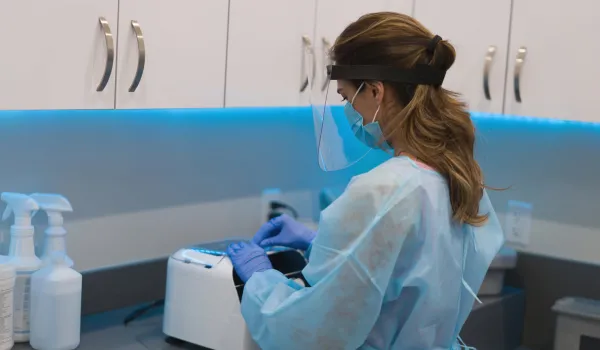Concorde Staff

Traumatic brain injuries (TBI) happen to thousands of people each year, whether by accident or purposeful injury (i.e., an attack). They can result in physical, cognitive, behavioral or emotional challenges that can range from minor to extremely severe and call for various levels of intervention and treatment.
That's where Occupational Therapists - and, by extension, Occupational Therapy Assistants such as those trained by Concorde - come into play.
People with TBI caused by a severe impact to the head from direct blows or severe shaking might experience short-term memory loss, have difficulty concentrating or paying attention, become easily disoriented, or have impaired judgment. They might experience headaches or migraines, have slurred speech, experience seizures, become fatigued, depressed, or easily agitated, or experience increased anxiety and impulsive behaviors.
Treatment by a qualified Occupational Therapist and Occupational Therapy Assistant can play a key role in helping those patients return to a state of well-being. They might not cure or heal the injury itself. But, they can train and teach the patient to function better and cope with the injury more effectively.
"Most traumatic brain injury clients are met with not only physical challenges, but also psychosocial, emotional and cognitive debilities," said Lainisha McMiller Turner, MOT, OTR/L, Concorde's Director of Occupational Therapy Assistant Programs in Miramar, FL. "TBI patients are the perfect recipients for occupational therapy services, as OT practitioners address the whole person."
What can an Occupational Therapy Assistant do?
Occupational Therapists and Occupational Therapy Assistants can help people who have sustained a TBI. The type and duration of intervention depend on how severe the injury. The OT and OTA can:
- Evaluate the client engaging in daily activities such as dressing and eating, both at work and home.
- Establish and restore endurance and strength so that patients can complete basic tasks and functions.
- Help the client minimize overstimulation and confusion in his or her environment.
- Implement weekly checklists.
- Recommend equipment that can aid a person in performing daily life activities with greater independence.
- Teach a person to compensate for problems with thinking, such as memory impairments.
What can families and friends of a person with TBI do?
- Become educated about the recovery process.
- Provide long-term support.
- Learn techniques to help the person with a TBI manage cognitive and physical challenges.
- Help the person adapt his or her home to accommodate the effects of a TBI.
Have you been searching for a meaningful and rewarding career where you can make a huge difference in the lives of those afflicted with traumatic brain injuries? Concorde's Occupational Therapy Assistant associate's degree program could get you to that career in as few as 20 months through a comprehensive foundation of hands-on skills training. To learn more about Concorde's OTA programs, call 1.800.693.7010.

Take The Next Step Towards a Brighter Future
Interested in learning more about our Occupational Therapy Assistant program? We have a Concorde representative ready to talk about what matters most to you. Get answers about start dates, curriculum, financial aid, scholarships and more!






